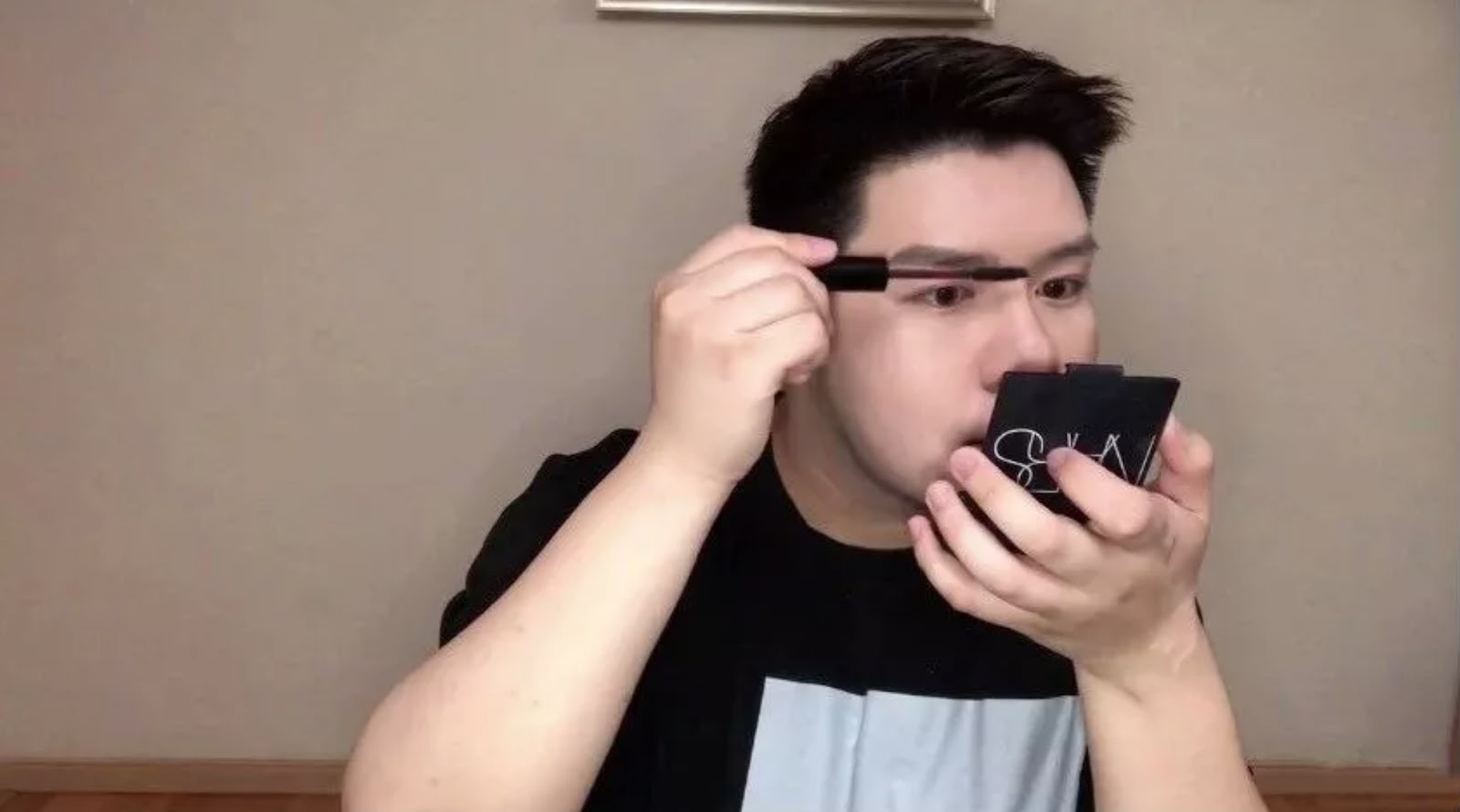Chinese Corner: The unapologetic patriotism of Wu Jing, the Wolf Warrior
Chinese Corner: The unapologetic patriotism of Wu Jing, the Wolf Warrior

Chinese Corner is Jiayun Feng’s weekly review of interesting nonfiction on the Chinese internet.
Patriotism is Wu Jing’s calling card. But what else does he have?
我爱吴京
I love Wu Jing
By ROOT
February 20, 2019
It’s temptingly easy to think of Wú Jīng 吴京 as an opportunist capitalizing on the rise of Chinese patriotism to achieve massive commercial success in the movie business. Starting off as a martial artist and actor, the now 44-year-old filmmaker was never an A-list star until the 2017 action movie Wolf Warriors 2 (战狼2 zhàn láng) — which Wu directed, produced, and starred in — proved to a spectacular success, making $858 million worldwide.
The movie, which remains China’s highest-grossing film of all time, was a remarkable turnaround for Wu. His run of success has continued: This year, The Wandering Earth (流浪地球 liúlàng dìqiú), a Chinese-made sci-fi blockbuster that Wu invested in and appears in, has raked in more than $650 million worldwide, and just might shatter box office records in China.
Wu is unstoppable at the moment. He is bound to make more commercially successful, and probably critically acclaimed, films in the future. But on his path to becoming a true movie legend, there’s one label he’s struggled to shrug off: patriotic. Indeed, his patriotism permeates his movies, in his media interviews, and even his social media activity.
After the popularity of Wolf Warriors 2, Wu has earned himself a legion of critics and haters, who have slammed him for keeping patriotism on the forefront. He has pushed patriotic products, employed nationalistic taglines in movie posters, and even shared scans of his passport to prove his Chinese citizenship.
Some of these criticism are valid, according to ROOT, who wrote this article about Wu’s tumultuous career. But if we trace Wu’s story to its starting point, it’s clear that he’s been a nationalist at the very outset, and his biggest strength just might be his persistence.
Related reading:
- 最后两位武生:吴京向左,赵文卓向右 The last two martial artists in our generation: Wu Jing turns left, Zhao Wenzhuo turns right
- 这二十年,我们目睹了一场武侠电影的大倒退 Martial arts films have undergone a huge regression in the last 20 years

Is men’s makeup going mainstream in China?
当中国男人开始化妆
When Chinese men start wearing makeup
By Wēn Lìhóng 温丽虹
February 27, 2019
Since its invention, makeup has been mostly the preserve of women. But the situation has changed in recent years, as more and more men have embraced the idea of wearing cosmetics and using skincare products in a society that is less ruled by gender stereotypes.
While men’s makeup is really having a moment in the West, as extensively reported in media, male beauty is still a sensitive, eyebrow-raising, and even taboo subject in Asian countries like China, where its tradition-bound conservative culture tends to mistreat people who fail to meet strict gender norms. In China, endorsing male beauty is not just a means of self-expression, but a rebellious act against society’s narrow definition of masculinity. In this article, journalist Wen Lihong profiles several Chinese men who are into beauty and gives an analysis of what’s preventing the trend from truly going mainstream.

Video games are Chinese parents’ greatest enemy. Where is the fear from?
中国父母为何恨游戏?
Why Chinese parents hate video games
By Tiānshǐ bù tóuzīrén 天使不投资人
February 28, 2019
There is an extensive list of things that Chinese parents loathe, and video games are definitely at the top. In fact, gaming is such a troublesome affair for Chinese parents that they are willing to send their kids to infamous internet detox camps, where a variety of abusive practices can take place.
To reduce the stigma associated with online games, a string of studies came out in the past few years, which offered abundant evidence to prove that there is no correlation between gaming and academic failure. But Chinese parents seem to ignore the fact while stubbornly waging a war against gaming.
This article takes a deep dive into analyzing the hostility. The author writes:
I’ll make a bold guess here. What Chinese parents fear the most is feeling estranged from their children. They are content with children dropping out for work as long as they do regular jobs and make legal money. But video games, the internet, and puppy love share one thing in common: they distance children from their parents and force them to learn about something they are not familiar with and build connections.

The war on Math Olympiad
天啊,居然有人怀念畸形的中国奥数热
OMG, I can’t believe there are people who reminisce about China’s unhealthy craze for Math Olympiad
By Yáng Jīntāo 杨津涛
March 1, 2019
In the world of sports, talent matters. Physical barriers are not easy to overcome. Neither are intellectual limits. But in the eyes of Chinese parents, who firmly believe that nothing is unachievable as long as you work hard enough, every child possesses massive potential to be exceptional in one area. And for many of them, that area is the International Math Olympiad (IMO), a problem-solving competition for pre-college students.
Over the years, Chinese parents’ bizarre obsession with Math Olympiad has turned what is supposed to be a special competition into every student’s nightmare. Children are often forced to attend Math Olympiad classes at an early age. The craze was so widespread that private primary schools required candidates to include their Math Olympiad scores in their applications. Meanwhile, the fad also fueled a national belief that Chinese contestants are far superior to their Western peers in the IMO games, which, as author Yang Jintao argues, is a total myth.
Related reading:
- 奥数大赛中国队全军覆没:都是“禁奥令”惹的祸?The Chinese team got wiped out in an IMO game. Is it because of the ban on Math Olympiad?
- 作为一个奥数金牌选手的家长,我坚决反对快乐教育 As the parent of a winner of an IMO game, I am strongly opposed to burden-free education

Below are some of the best things that caught my attention this week:
- 东北悲惨故事:有种罪叫曲婉婷做音乐 A tragic tale in Northeastern China: There is a crime called Qu Wanting making musicShe is a famous Chinese-born singer-songwriter based in Canada. She used to date Vancouver’s mayor Gregor Robertson. She is also the daughter of a former Chinese official, who is accused of embezzling $52 million, part of which was used to fund her music career.
- 凭什么香港警察这么惹全国人民喜欢?Why do Chinese people love Hong Kong police?
- 乡村智障女和她的三个男人、四个孩子 The mentally disabled woman in rural China, her four children, and their three fathers
- 我进了保险公司,感觉傻爆了 I joined an insurance company and it’s dumb AFA tongue-in-cheek essay about the difficult life of an insurance salesman in China
- 梁文道:一场由“屎尿屁”引发的文化冲突 Liang Wendao: A culture clash triggered by “poop, pee, and farts”An exploration of China’s complex relationship with toilets









